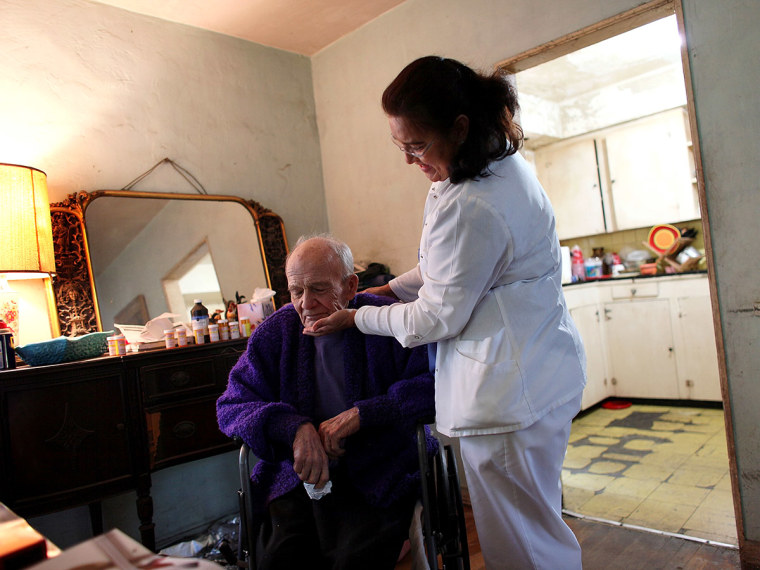Some 2 million home health care workers will enjoy federal minimum wage and overtime protections starting in 2015. The White House approved new rules Tuesday that will close a decades-old loophole in labor law.
President Obama first proposed these changes two years ago, but business and health care lobbying groups have staunchly opposed including workers who provide direct care to the elderly and disabled in the Fair labor Standards Act. When the law, first passed in 1938, was updated in 1974, it included an exemption that was supposed to apply to informal arrangements like occasional babysitting but that eventually encompassed skilled labor like home medical care.
"Home care workers provide crucial in-home care and support for our elderly or disabled family members, friends, and neighbors; yet these workers have struggled to support their own families,” said Christine Owens, executive director of the National Employment Law Project.
Home health care is one of the fastest growing professional fields, and it is one that relies on a work force of women, many of them black and Latino. The Health Department estimates that more than 90% of home health care aides are women.
While groups like NELP, the American Association of Retired People, and the Direct Care Alliance argued that raising the minimum wage and adding labor protections would help to improve the quality of care people receive by reducing turnover and rewarding greater training, those who opposed the changes raised the specter of skyrocketing costs.
"Today we are taking an important step toward guaranteeing that these professionals receive the wage protections they deserve while protecting the right of individuals to live at home," Secretary of Labor Tom Perez said in a statement Tuesday.
Perez said the rules will not take effect for more than a year in order to allow the industry to adapt to the changes. Normally new regulations take effect within 60 days of being adopted.
With the number of Americans over 65 set to double in the next 20 years, failing to expand protections could leave millions of workers struggling to make ends meet. The number of home health care workers is expected to reach 4 million by 2020.
Steve Kornacki discussed the history of the FLSA and the loophole that was closed through this new rule on the June 22, 2013 Up with Steve Kornacki. Watch that segment below.
